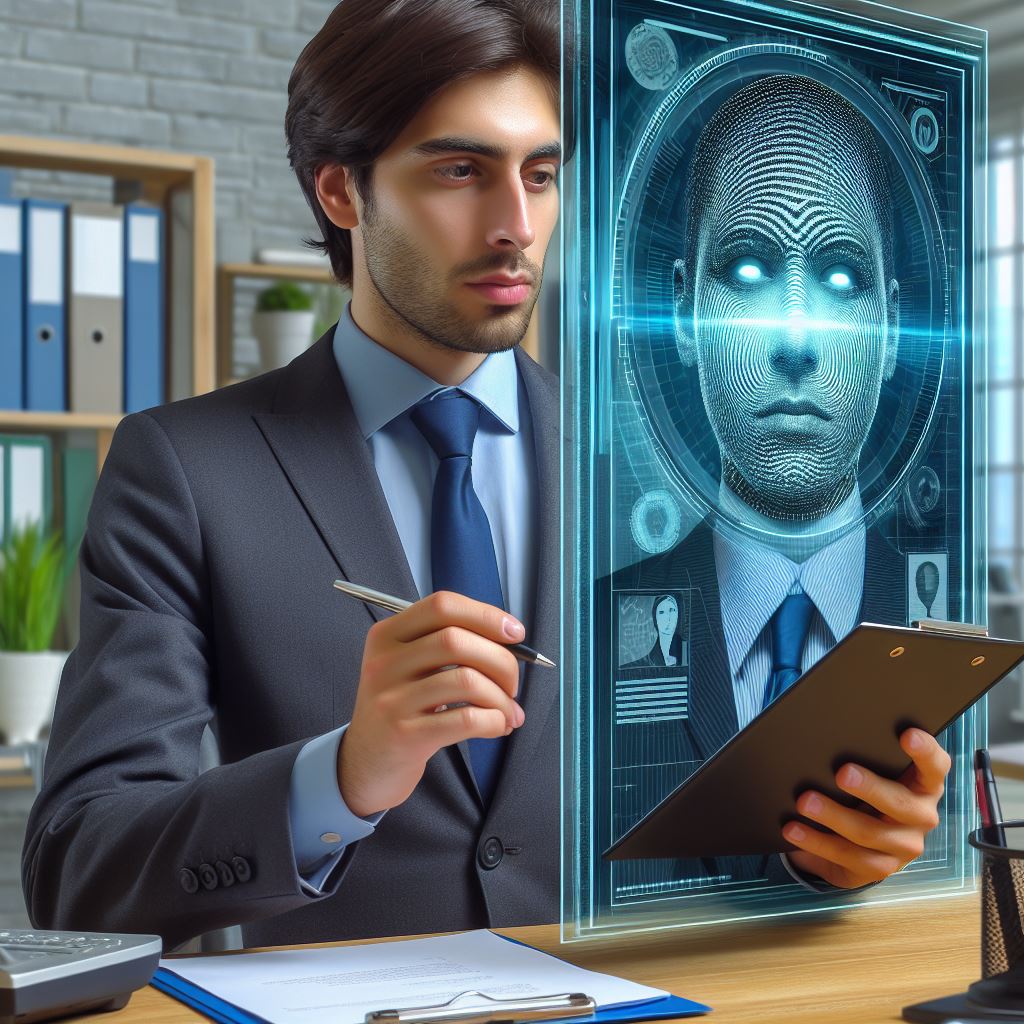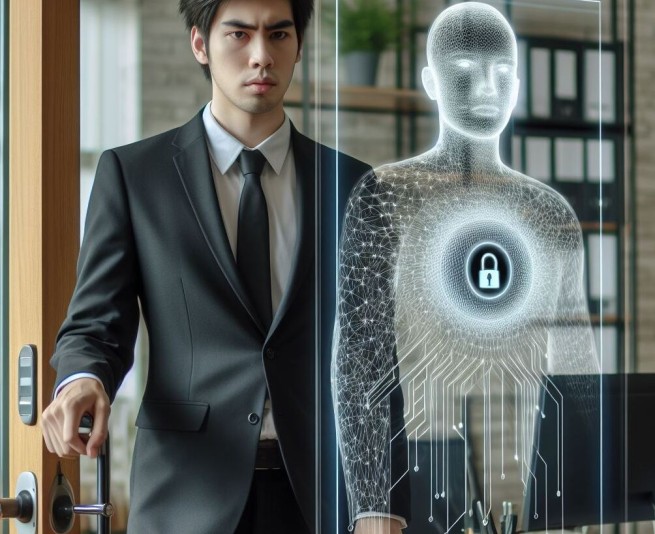Created by AI
Instead of posing for photos and generating codes, it will only take a few minutes for the new employee in the future to provide biometric information.
Your face will be scanned, your gait will be analyzed, your speech will be recorded. And therefore the body itself will become the key to security systems. “Once you reach the parking lot, your geographic location will be transmitted to the system from the company-issued phone (business phone). As soon as you walk through the front door, facial recognition can open the door and unlock your computer,” says Mohamed Lazouni, chief technology officer at Aware, which develops security systems to authenticate people.
This technology can eliminate problems with forgotten cards and codes, as well as strengthen companies’ protection from cyber attacks. But it also raises concerns about how this data could be used beyond safety, and whether employers should have this level of information about their workers’ physical bodies and behavior.
Today, some clinics use palm scanners to register patients, and smartphones are unlocked by face or fingerprint. Facial recognition has become more common at airports, stadiums and concert venues. Security industry executives say that in coming years, advances in artificial intelligence and sensor technologies could help organizations simultaneously use multiple pieces of biometric data—the “puzzle”—that make up an employee.
Eye scanning was featured in the 2002 sci-fi film Minority Report, which Lazuni calls one of his favorites. Tom Cruise’s character in the film gains access to his highly secure workplace with the help of technology that later comes back to haunt him. Despite the film’s dystopian twist, Lazuni says he finds it fascinating: “All you have to do is look at the device’s reflection – it will be able to read your iris and automatically grant you all the access you need to whatever you intend to interact with.” .
In addition to convenience, biometrics provide stronger security for buildings and data than a key card or password, security experts say. “It’s easy to copy an employee’s password, but it’s very difficult to copy an employee’s face, which is movable,” says Ron Daguero, CEO of authID, a company that makes identity verification and digital security systems.

According to Daguro, future office security systems will be able to simply block people who are not identified or authorized. “We have a log of faces so we know exactly who is coming in and out of the building, which is something you can’t do with a password,” he notes.
AuthID itself does not use passwords at his workplace: “We open the laptop, the camera turns on and that’s it! We automatically connect to the computer.” This the policy reflects the company’s commitment and confidence in the technologies it develops. This also means that biometric scanning is a mandatory requirement for those who work in authID. Employees agree to this policy upon hiring, reports Daguro. And any biometric data collected by the company—both for authID clients and its employees— anonymous and encryptedhe adds.
Biometric scanning is an important deterrent as attempts to hack corporate systems become more frequent and sophisticated, says Andrew Sicard, executive director of the FIDO Alliance-for Fast Identity Online, an industry association that develops digital security standards. Tech giants such as Google, Apple, Amazon and Microsoft are among the members of the group, which aims to wean people off passwords. Instead, they promote the use of passkeys, where a piece of encrypted code on a physical device such as a phone or laptop is unlocked using the user’s biometrics.
“Face images, real-time motion detection, iris scanning, vein scanning, heart rate—they all have a unique parameter (biorhythm) that makes you unique,” says Saikar.
Despite its safety, biometric technology also means that it uses the most personal and permanent data, which poses a threat to privacy. “When it comes to biometrics, we want people to know what’s being collected, know what it’s being used for and be able to ask to stop collecting if they’re not comfortable,” said Haley Tsukayama, deputy director of legal advocacy for the Electronics Frontier Foundation, a nonprofit an organization that defends civil liberties in the digital world.
“Even the best technology makes mistakes,” says Tsukayama. If software confuses someone’s identity, it is important that employees have the right to appeal. The stakes are especially high for biometrics. “Nobody can give me new fingerprints. Nobody can give me a new face. And so if that information is compromised and in a form where other people can use it, that’s the whole point.”
Lazuni and Daguro argue that a combination of encryption and government regulation of the collection, use and storage of biometric information is necessary to lay the foundation for a biometric security industry.
Consumer technology is an “ally.” Still, they have the potential to ease people’s concerns about sharing personal information in the same way that smartphones have helped facilitate the spread of facial recognition technology, security industry executives say. They envision a future in which security goes beyond the iris scan in Minority Report to a chip placed inside the body.
The advent of semiconductors for health monitoring could eventually pave the way for using the same biometric data to get past security systems, Daguro said. “Nobody is going to put a chip in your body just for identification, but they are going to put a chip in your body for knowledge or for health or to help you live a better lifestyle. And then relief will quickly come.”







More Stories
The Holy Fire will arrive at Athens airport at 19:00
Be careful: no one is safe from a black widow bite (video)
Study: Women live longer, but also suffer more health problems than men